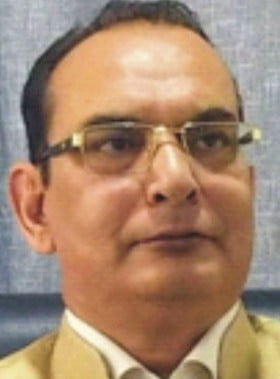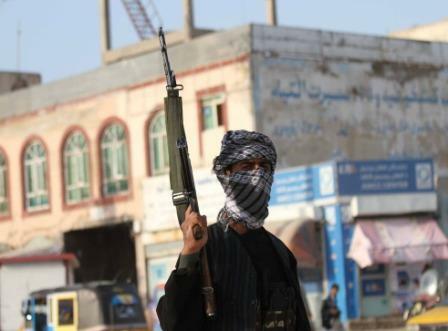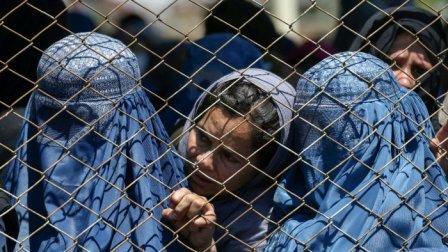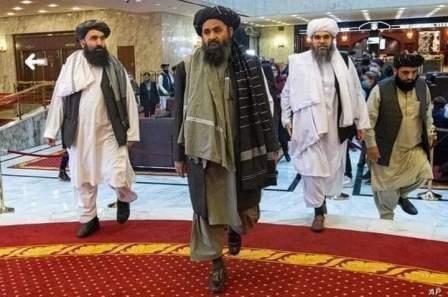

THE latest international conference to discuss the evolving situation in Afghanistan and also review the response of the neighbouring and regional countries to the latest Taliban decisions, took place in Dushanbe, Tajikistan, last week.
National security advisors from Tajikistan, India, Russia, Kazakhstan, Uzbekistan, Iran, Kyrgyzstan and China, with Pakistan abstaining – as it currently has no NSA, attended the Regional Security Dialogue on Afghanistan.
It is believed that all the NSAs highlighted the need to find constructive ways to ensure peace and stability in Afghanistan and combating risks from terrorism emanating from the region and particularly ensure that Afghanistan doesn’t become a terror hub again.
 This has been a primary concern for India since the Taliban took over the country, besides the rights of Afghan citizens, especially women and minorities. India has already closed down its diplomatic missions in Afghanistan, which the Taliban keenly wants to be reopened.
This has been a primary concern for India since the Taliban took over the country, besides the rights of Afghan citizens, especially women and minorities. India has already closed down its diplomatic missions in Afghanistan, which the Taliban keenly wants to be reopened.
The secretary of Iran’s Supreme National Security Council (SNSC) at the meeting said certain countries in the region and beyond are transferring Takfiri terrorists to Afghanistan, Ali Shamkhani said terrorism and extremism are among the main causes of insecurity in Afghanistan.
Talibani Diktats
However, what concerns the international community more is the series of Talibani diktats on social issues, targeting women and specific Muslim sects in particular.
On May 9, the Islamic Emirate of Afghanistan (IEA) ordered women and older girls to cover their faces when in public. The order further said that punishments for violating the decree would be inflicted on their male family members. Taliban leaders responded to public outcry by insisting that the decree is not mandatory, but so far their own enforcement efforts contradict those statements.
Further, on May 21, the IEA’s Ministry of Vice and Virtue ordered all women television presenters to cover their faces, stating “the decision was final and that there was no room for discussion.”
Heather Barr of the Human Rights Watch described these new diktats as blatantly violating women’s rights to freedom of expression, as well as personal autonomy and religious belief.

In response to the order, male presenters at several major news channels in Afghanistan started wearing face masks on air in solidarity with their female colleagues – an act that prompted the #FreeHerFace campaign on social media. As one women’s rights activist wrote, “Afghan men showing up for Afghan women is not just a gesture. It’s a turn in the story that will change everything. Brave brothers.”
This latest order is part of a steady flow of Taliban actions that have blocked girls’ secondary education, pushed women out of most employment, curtailed women’s freedom of movement, obstructed women’s access to health care, and abolished the system designed to protect women and girls from violence.
They have gradually imposed more restrictions on Afghan women and Shia community. After banning them from acquiring certain government jobs, getting education, and travelling alone outside their cities, they have now ordered them to wear the burqa or to cover themselves from head to toe in public.
Talibani rationale
All these developments preplexes one to wonder as to why the Taliban-led IEA is hell bent on imposing those restrictions, which were introduced in its earlier stint also and to which they had vowed not to revert again.
It seems that Taliban have no intentions of transforming them into a modern-day political entity and change their views. In fact they have slowly started implementing their real agenda, based on skewed political motives and controversial ideological beliefs.
Afghanistan of present might become a nation with contradictory notions of personal freedom as viewed by them in contrast to internationally recognised definition of personal freedom. They very well understand that international recognition will bind them to certain western norms and obligations, on human rights in particular, and as those would completely contradict their self-defined ideology or interpretation of Islam, they are ready to ignore it for the time being.
 They might have thought that they would be able to deceive the international community by making shallow promises regarding female education and introducing an inclusive political structure. With US unfreezing their sovereign funds and after some key Islamic states formally recognised them, they would go about enforcing their actual agenda.
They might have thought that they would be able to deceive the international community by making shallow promises regarding female education and introducing an inclusive political structure. With US unfreezing their sovereign funds and after some key Islamic states formally recognised them, they would go about enforcing their actual agenda.
The international observers’ hope was that the members of the Afghan Delegation based in Doha-Qatar might be able to influence their counterparts in Afghanistan, to follow the international demands. But in reality these moderate elements were sidelined in the new government and the hawks amongst them took control based on their ideological beliefs. Justifying their initial actions, some supporters pointed that their conservative mindset would take time to adjust to global realities. But the truth is that they have even failed to address the security concerns of their immediate neighbours.
So far they have even been unable to control the militant Islamic organisations like ISIS-Khorasan, which is present in some key Afghan provinces. This inaction on their behalf gives goose bumps to their immediate and regional neighbours, both. Similarly, they have been unable to reign-in Tehreek-i Taliban Pakistan, which in fact enjoys full support of the IEA regime.
The irony is that Taliban’s supporters, who were sincerely ready to offer them a second chance are dismayed by the double meaning actions or inactions by the IEA, as it puts the future of a vast majority of common Afghani on the block and does not bode well for the country’s future. Besides pushing those supporters into a tight corner. ![]()
__________________
Also Read:
Centre’s Opaque Auction Rules For Pulses Rip Off Govt Coffers, Help Millers Strike Rich
Need to amend laws like UAPA to provide for punishment for those who slap false cases
Global Arms Trade: Who are the real winners?
Why not 40 pc tickets for women in Punjab and elsewhere?
Punjab – How a deadly cocktail of Agri-Water-Energy nexus going to destroy it?
North Pole and the ideological conflict of RSS & Hindutva
Politics of Symbolism: Dalit Chief Ministers in India

Disclaimer : PunjabTodayTV.com and other platforms of the Punjab Today group strive to include views and opinions from across the entire spectrum, but by no means do we agree with everything we publish. Our efforts and editorial choices consistently underscore our authors’ right to the freedom of speech. However, it should be clear to all readers that individual authors are responsible for the information, ideas or opinions in their articles, and very often, these do not reflect the views of PunjabTodayTV.com or other platforms of the group. Punjab Today does not assume any responsibility or liability for the views of authors whose work appears here.
Punjab Today believes in serious, engaging, narrative journalism at a time when mainstream media houses seem to have given up on long-form writing and news television has blurred or altogether erased the lines between news and slapstick entertainment. We at Punjab Today believe that readers such as yourself appreciate cerebral journalism, and would like you to hold us against the best international industry standards. Brickbats are welcome even more than bouquets, though an occasional pat on the back is always encouraging. Good journalism can be a lifeline in these uncertain times worldwide. You can support us in myriad ways. To begin with, by spreading word about us and forwarding this reportage. Stay engaged.
— Team PT


Copyright © Punjab Today TV : All right Reserve 2016 - 2025 |